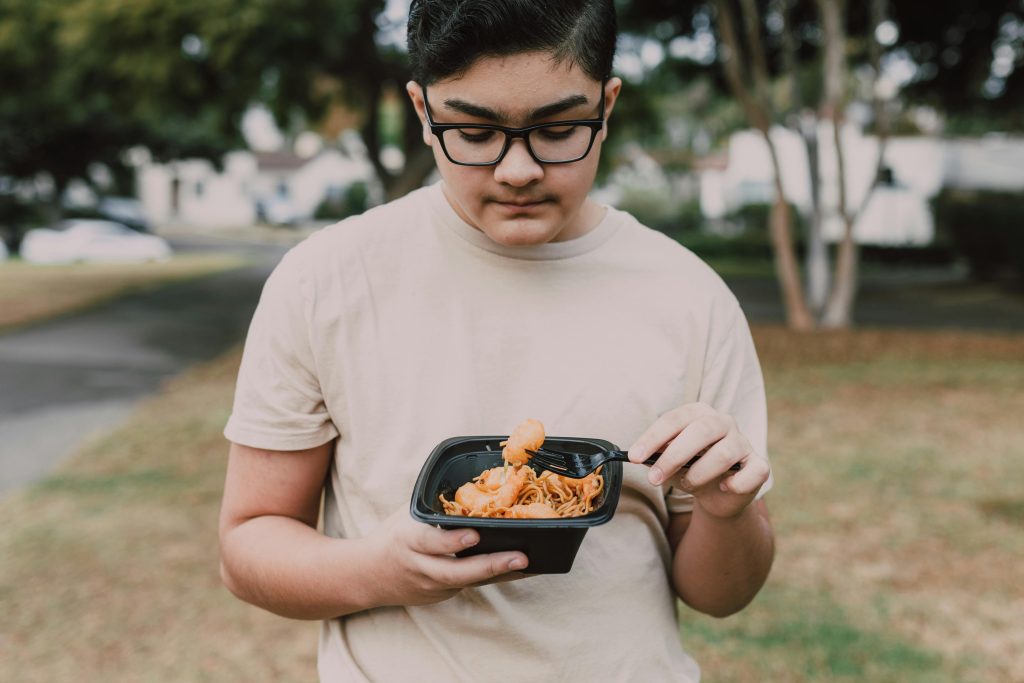The Culinary Cradle
Our earliest experiences with food are not merely about sustenance; they are the foundational building blocks of a complex and deeply personal relationship that will accompany us throughout our lives. Our childhood experience with food forms our lifelong relationship with sustenance. Just as language acquisition begins in infancy, our understanding of food – its meaning, its role, and our feelings towards it – is largely sculpted during childhood. These formative years lay the groundwork for our eating habits, our emotional connections to food, and ultimately, our long-term health and well-being. Understanding this “culinary cradle” is crucial for parents, caregivers, and anyone seeking to foster a healthy and balanced relationship with food, both for themselves and for future generations.

The First Bites: Sensory Exploration and the Dawn of Preference
From the moment we are introduced to solids, food becomes a multi-sensory exploration. The textures, tastes, smells, and even the visual presentation of food imprint themselves on our developing palates. Early exposure to a diverse range of flavors and textures can cultivate a more adventurous and less picky eater later in life. Conversely, a limited or monotonous diet during these crucial years can lead to neophobia – the fear of trying new foods – and a preference for familiar, often less nutritious options.
Consider the child who is consistently offered a wide array of fruits, vegetables, grains, and proteins. They learn to discern subtle differences in taste and texture, developing a broader appreciation for the culinary landscape. In contrast, a child whose diet primarily consists of processed foods, often high in sugar, salt, and unhealthy fats, may develop a preference for these intense flavors, making less palatable but nutrient-dense foods seem bland and unappealing.
Furthermore, the manner in which these first encounters with food occur plays a significant role. A calm and encouraging environment during mealtimes fosters positive associations with eating. Pressure, force-feeding, or using food as a reward or punishment can create anxiety and negative emotions around food, setting the stage for problematic eating behaviors later on.

The Family Table: A Crucible of Culinary Culture and Habits
The family table serves as a powerful classroom where children learn not just what to eat, but also how to eat and the social and emotional significance of food. Family meals provide opportunities for observation and imitation. Children watch their parents’ eating habits, their attitudes towards different foods, and the overall atmosphere surrounding mealtime.
If parents prioritize healthy eating, enjoy a variety of foods, and approach meals with a sense of pleasure and connection, children are more likely to internalize these positive behaviors. Conversely, if parents consistently skip meals, express dislike for certain healthy foods, or engage in restrictive dieting, children may adopt similar patterns.
Beyond the direct influence of parental habits, the cultural and familial traditions surrounding food also shape our relationship with it. Holiday meals, special family recipes, and the stories associated with them create powerful emotional connections to food that can last a lifetime. These traditions instill a sense of belonging and comfort, often transcending the nutritional value of the food itself.

The Influence of External Forces: School, Media, and Peer Pressure
As children grow, their exposure to food expands beyond the home. School environments, with their cafeterias and peer influence, introduce new culinary experiences and social dynamics around eating. The media, particularly advertising aimed at children, can also exert a significant influence, often promoting less nutritious options.
Navigating these external forces requires children to develop critical thinking skills and a strong internal compass regarding food choices. However, the foundation laid during early childhood – the values and attitudes instilled at home – will significantly impact their ability to make informed decisions when faced with these external pressures.

Emotional Nourishment: Food as Comfort and Reward
Food is often intertwined with emotions from a very young age. Breastfeeding or bottle-feeding provides not only nourishment but also comfort and security. As children grow, food can be used as a reward for good behavior or a source of solace during times of distress. While occasional comfort eating is a normal human experience, relying heavily on food to manage emotions can lead to unhealthy patterns and an emotional disconnect from true hunger and satiety cues.
Parents and caregivers play a crucial role in helping children develop healthy coping mechanisms that do not involve food. Offering affection, attention, and alternative ways to deal with stress or sadness can prevent the development of emotional eating habits.
The Development of Body Image and Food Rules
As children become more aware of societal ideals around body image, their relationship with food can become increasingly complex. Negative comments about body size, restrictive dieting within the family, or exposure to unrealistic media portrayals can contribute to body dissatisfaction and the development of rigid food rules.
These rules, often based on misinformation or a desire for thinness, can create anxiety and guilt around eating, leading to disordered eating patterns. It is crucial to foster a positive body image from a young age, emphasizing the importance of nourishing the body for health and well-being rather than focusing solely on appearance.

Fostering a Healthy Relationship: A Lifelong Investment
Cultivating a positive and balanced relationship with food in childhood is a long-term investment in a child’s physical and emotional health. It requires a conscious and consistent effort from parents and caregivers to create an environment that promotes mindful eating, celebrates food in a healthy way, and fosters a positive body image.
Here are some key strategies for nurturing a healthy culinary cradle:
- Lead by Example: Children are keen observers. Model healthy eating habits and a positive attitude towards a variety of foods.
- Offer Variety and Exposure: Introduce a wide range of fruits, vegetables, whole grains, and lean proteins from an early age. Repeated exposure, even if initially rejected, can eventually lead to acceptance.
- Create Positive Mealtime Experiences: Make mealtimes enjoyable and relaxed. Avoid distractions like screens and focus on connection and conversation.
- Involve Children in Food Preparation: Allowing children to participate in grocery shopping and cooking can increase their interest in and appreciation for food.
- Focus on Nourishment, Not Just Restriction: Emphasize the importance of food for energy, growth, and overall health, rather than solely focusing on calories or weight.
- Avoid Using Food as Reward or Punishment: This can create unhealthy emotional associations with food.
- Promote Body Positivity: Help children understand that bodies come in all shapes and sizes and that health is more important than appearance.
- Teach Mindful Eating: Encourage children to pay attention to their hunger and fullness cues and to savor their food.
- Open Communication: Create a safe space for children to talk about their feelings and concerns related to food and body image.
- Seek Professional Guidance When Needed: If you have concerns about your child’s eating habits or relationship with food, don’t hesitate to consult a pediatrician, registered dietitian, or therapist.

Conclusion: Sowing the Seeds of a Healthy Future
The relationship we develop with food in childhood is a powerful determinant of our lifelong eating patterns and overall well-being. By understanding the profound impact of these early experiences, we can consciously cultivate a “culinary cradle” that nurtures a healthy, balanced, and joyful connection with food. This investment in our children’s early years will sow the seeds for a future where food is a source of nourishment, pleasure, and connection, rather than a source of anxiety or conflict. Just as we carefully guide their learning and development in other areas, nurturing their relationship with food is an essential aspect of raising healthy and well-adjusted individuals.
More on the same topic here: https://www.bariradka.com/2025/02/22/childhood-eating-habits/

